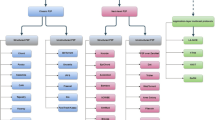Abstract
Reputation mechanisms help peer-to-peer (P2P) networks to detect and avoid unreliable or uncooperative peers. Recently, it has been discussed that routing protocols can be improved by conditioning routing decisions to the past behavior of forwarding peers. However, churn — the continuous process of node arrival and departure — may severely hinder the applicability of rating mechanisms. In particular, short lifetimes mean that reputations are often generated from a small number of transactions.
To examine how high rates of churn affect rating mechanisms, this paper introduces an analytical model to compute at which rate transactions has to be performed so that the generated reputations are sufficiently reliable. We then propose a new routing protocol for structured P2P systems that exploits reputation to improve the decision about which neighbor choose as next hop. Our results demonstrate that routing algorithms can extract substantial benefits from reputations even when peer lifetimes are short.
This research was partially funded through project P2PGRID, TIN2007-68050-C03-03, of the Ministry of Education and Science, Spain.
Chapter PDF
Similar content being viewed by others
References
Galuba, W., et al.: Authentication-free fault-tolerant peer-to-peer service provisioning. In: DBISP2P 2007. Springer, Heidelberg (2007)
Sànchez-Artigas, M., García-López, P., Skarmeta, A.F.G.: Secure forwarding in dHTs - is redundancy the key to robustness? In: Luque, E., Margalef, T., Benítez, D. (eds.) Euro-Par 2008. LNCS, vol. 5168, pp. 611–621. Springer, Heidelberg (2008)
Swamynathan, G., et al.: Exploring the feasibility of proactive reputations. Concurrency and Computation: Practice and Experience 20(2), 155–166 (2008)
Stoica, I., et al.: Chord: a scalable peer-to-peer lookup protocol for internet applications. IEEE/ACM Trans. Netw. 11(1), 17–32 (2003)
Leonard, D., Rai, V., Loguinov, D.: On lifetime-based node failure and stochastic resilience of decentralized peer-to-peer networks. In: ACM SIGMETRICS, pp. 26–37 (2005)
Prabhu, N.: Stochastic Processes; Basic Theory and its Applications. Macmillan, New York (1965)
Sen, S., Wang, J.: Analyzing peer-to-peer traffic across large networks. IEEE/ACM Trans. Netw. 12(2), 155–166 (2004)
Jøsang, A., Ismail, R.: The beta reputation system. In: 15th Bled Electronic Commerce Conference e-Reality: Constructing the e-Economy (2002)
Teacy, W., et al.: Coping with inaccurate reputation sources: experimental analysis of a probabilistic trust model. In: AAMAS 2005, pp. 997–1004. ACM, New York (2005)
Rhea, S., et al.: Handling churn in dhts. In: USENIX Annual Technical Conference (2004)
Dabek, F., et al.: Designing a dht for low latency and high throughput. In: NSDI 2004, pp. 85–98 (2004)
Krishnamurthy, S., et al.: A statistical theory of chord under churn. In: PDP 2008, pp. 473–482 (2008)
Marti, S., Ganesan, P., Garcia-Molina, H.: DHT routing using social links. In: Voelker, G.M., Shenker, S. (eds.) IPTPS 2004. LNCS, vol. 3279, pp. 100–111. Springer, Heidelberg (2005)
Author information
Authors and Affiliations
Editor information
Editors and Affiliations
Rights and permissions
Copyright information
© 2009 Springer-Verlag Berlin Heidelberg
About this paper
Cite this paper
Sànchez-Artigas, M., García-López, P., Herrera, B. (2009). Exploring the Feasibility of Reputation Models for Improving P2P Routing under Churn. In: Sips, H., Epema, D., Lin, HX. (eds) Euro-Par 2009 Parallel Processing. Euro-Par 2009. Lecture Notes in Computer Science, vol 5704. Springer, Berlin, Heidelberg. https://doi.org/10.1007/978-3-642-03869-3_51
Download citation
DOI: https://doi.org/10.1007/978-3-642-03869-3_51
Publisher Name: Springer, Berlin, Heidelberg
Print ISBN: 978-3-642-03868-6
Online ISBN: 978-3-642-03869-3
eBook Packages: Computer ScienceComputer Science (R0)




